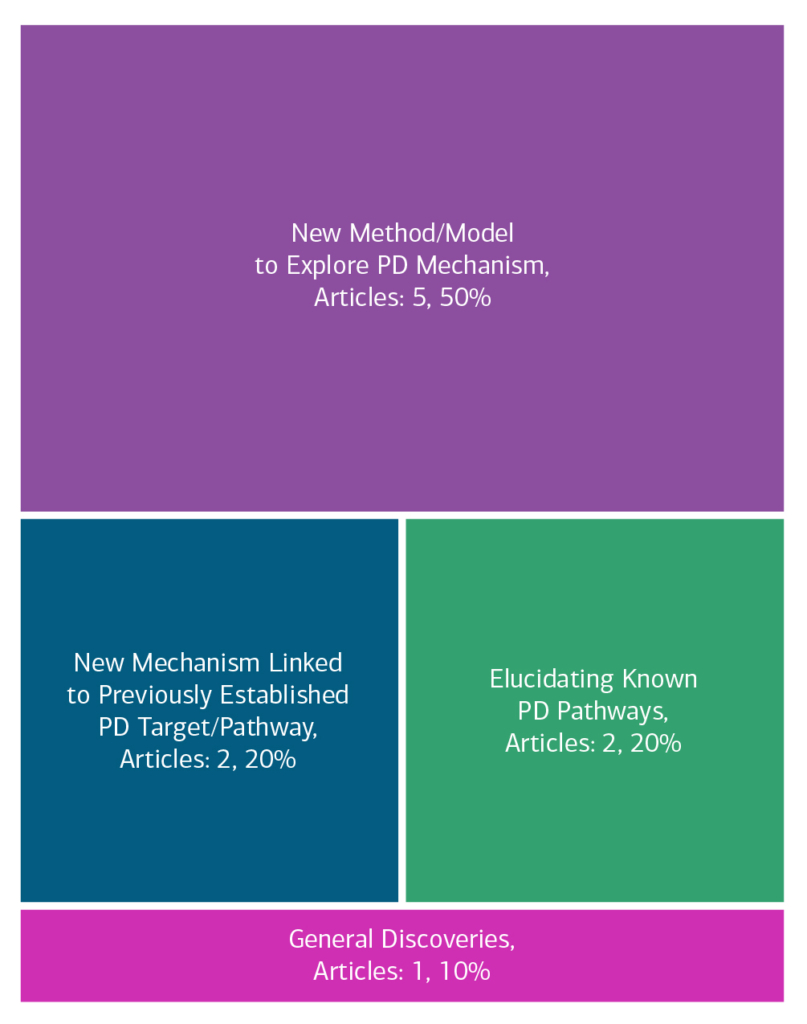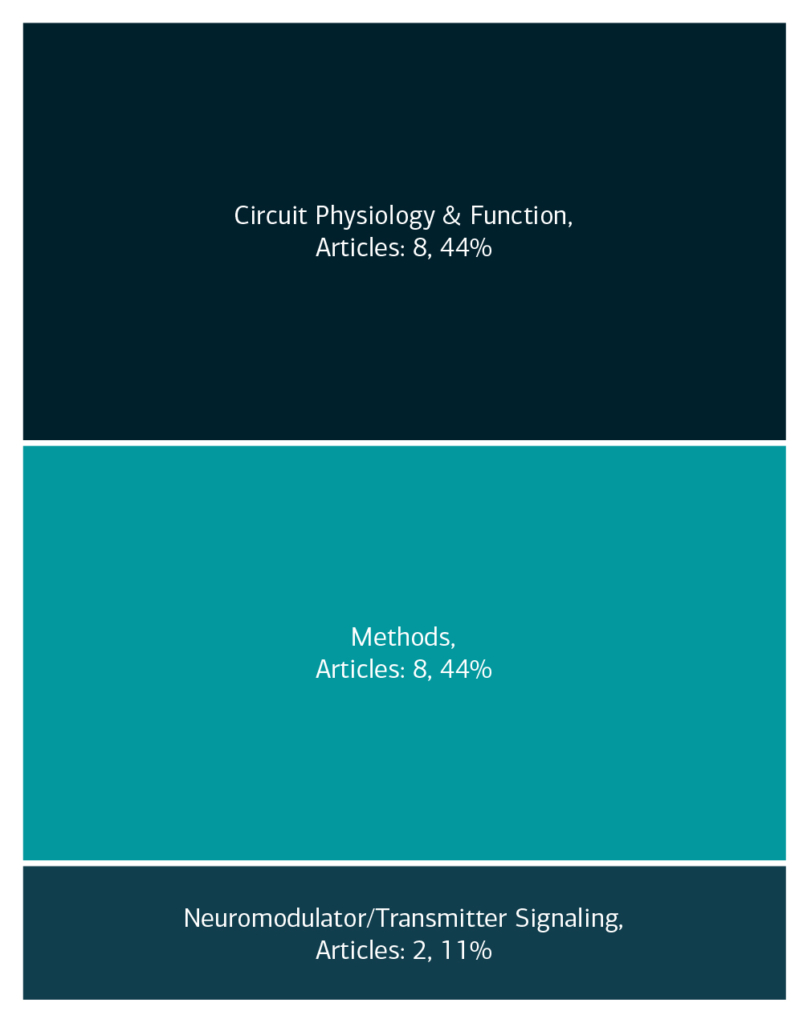Circuitry and Brain-Body Interactions | 2021
Basal Ganglia Networks in Parkinson’s Disease
Study Rationale: People with Parkinson’s disease have long been known to display remarkable motor abilities under special circumstances, such as smooth walking with certain visual or auditory cues. This phenomenon is called paradoxical kinesia. In addition, placebos can be surprisingly effective in treating the motor signs of the disease. Team Strick hypothesizes that a specific neuroanatomical substrate supports paradoxical kinesia and the placebo effect. The team plans to define this substrate and investigate its functional organization.
Hypothesis: Team Strick hypothesizes that a specific neural circuit supports paradoxical kinesia and the placebo effect.
Study Design: Team Strick will use cutting-edge techniques to reveal the two distinct brain circuits that enable the basal ganglia to influence the control of voluntary movement in primates. Next, the team will record the electrical and chemical activity of basal ganglia neurons in the best animal model of Parkinson’s disease. In addition, Team Strick will determine the molecular signatures of basal ganglia neurons that are affected by the disease and those that are left intact. Finally, the team will image neural activity in human subjects affected by the disease to determine the full range of strategies that could be used to improve basal ganglia function.
Impact on Diagnosis: Team Strick’s results could re-shape paradigms for therapeutic development and attempts to influence disease progression. Importantly, the team’s results have the potential to use basal ganglia circuits that are untouched by the disease to promote recovery of more normal motor function..
Leadership
Project Outcomes
Team Strick's project will perform a multidisciplinary characterization of the networks that link the basal ganglia with the cortical motor areas. The information from the team's studies could lead to new therapeutic targets to delay disease progression and new approaches to ameliorate the motor dysfunction that is so disabling for PD patients. View Team Outcomes.
Team Outputs
Click the following icons to learn more about the team’s outputs:
Overall Contributions
Here is an overview of how this team’s article findings have contributed to the PD field as of May 2025. There are two different categorizations of these contributions – one by impact to the PD community and a second by scientific category.
Impact

Category

Featured Output
Below is an example of a research output from the team that contributes to the ASAP mission of accelerating discoveries for PD.
An open-source MRI-compatible frame for multimodal presurgical mapping in macaque and capuchin monkeys
Neurosurgical targeting in nonhuman primates (NHPs) requires accurate mapping techniques requiring multimodal neuroimaging. This manuscript describes a novel custom-made MRI-compatible stereotaxic frame for NHPs. This frame allows for precise procedures involving MRI, CT, and PET modalities, facilitating deep-brain procedures including neuronal tracer delivery and electrode implantations. By utilizing 3D printing, the authors have developed a modular frame that fits within the dimensional constraints of human head coils. This frame eliminates the need for implanted markers or specialized software, instead offering liquid-tight fiducial cavities that enhance modality-specific contrasts. With the CAD files openly available to the public, this apparatus has the potential to improve the accuracy of interventional techniques and promote ethical research practices.
Team Accolades
- Awards
- Open Science Champions: Daisuke Kase, Neil Dundon, Elizabeth Rizor, Jingyi Wang, Joanne Stasiak
- Network Spotlights: Andreea Bostan
Other Team Activities
- Interest Groups: PD Modeling – NHP Models – Robert Turner (Chair)
- Discover ASAP Interview: Open-Source Code for Detecting Rhythmic Spiking Through the Power Spectra of Point Process Model Residuals with Karin Cox, PhD
- Discover ASAP Interview: SoCal Kinesia and Incentivization for Parkinson’s Disease (SKIP) with Neil Dundon, PhD
In the News
- Placebo-inspired project wins $12 million grant to help Parkinson’s patients (University of Pittsburgh, October 28, 2021)
- A brain circuit tied to emotion may lead to better treatments for Parkinson’s disease (NPR, February 7, 2022)












